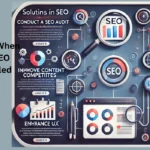The role of an agency’s reputation and branding are among its most critical assets in a competitive marketplace. A strong reputation and strategic branding can make all the difference for agencies aiming to attract high-value clients—those who bring significant revenue and long-term opportunities. Here’s an in-depth look at how these elements influence the ability to attract and retain premium clients.
1. Establishing Credibility and Trust
High-value clients often operate with larger budgets and higher stakes, making trust a primary factor in their decision-making process. A well-regarded reputation signals reliability and professionalism, reassuring clients that their investment is in safe hands.
- Demonstrating Expertise: A history of successful projects, testimonials, and case studies highlights the agency’s ability to deliver results. High-value clients are more likely to trust an agency with proven experience in their industry.
- Consistency Matters: Consistent messaging and delivery of services reinforce trust. An agency’s reputation is built over time through reliability and a track record of meeting or exceeding expectations.
Actionable Tip: Actively solicit and showcase client testimonials and success stories to demonstrate credibility.
2. Differentiating in a Crowded Market
The digital marketing and SEO industries are highly competitive, with countless agencies offering similar services. Strong branding helps an agency stand out by highlighting its unique value proposition.
- Specialization: Agencies that brand themselves as specialists in certain niches or industries often attract clients seeking tailored expertise.
- Memorability: A cohesive and distinct brand identity—from logos to taglines to tone of voice—makes the agency more recognizable and appealing.
Actionable Tip: Develop a unique brand narrative that communicates what sets your agency apart from competitors.
3. Attracting Like-Minded Clients
High-value clients seek partners that align with their values, goals, and vision. Branding reflects the agency’s personality and culture, helping attract clients who share similar priorities.
- Value Alignment: For example, an agency emphasizing ethical SEO practices will draw clients who prioritize sustainable and long-term growth.
- Cultural Fit: Branding that communicates the agency’s ethos and work style helps filter for clients who are likely to mesh well with the team.
Actionable Tip: Clearly define and communicate your agency’s core values in your branding materials.
4. Building Emotional Connection
Strong branding creates an emotional connection with potential clients, making them more likely to choose the agency over others.
- Storytelling: Sharing the agency’s journey, mission, and successes helps humanize the brand and foster a sense of partnership.
- Visual Identity: A professional and appealing visual identity—including logos, website design, and marketing collateral—enhances credibility and emotional appeal.
Actionable Tip: Use storytelling in marketing campaigns to connect with clients on a deeper, emotional level.
5. Demonstrating Professionalism
Branding and reputation reflect the agency’s professionalism and quality of work. High-value clients equate polished branding with attention to detail and competence.
- First Impressions: A well-designed website, informative content, and seamless user experience can make a strong first impression.
- Brand Consistency: Consistent use of branding elements across all platforms conveys reliability and attention to detail.
Actionable Tip: Regularly audit your branding materials to ensure they reflect the professionalism and quality you want to communicate.
Also Read
6. Generating Referrals and Word-of-Mouth
A stellar reputation often leads to organic referrals, which are a key driver for high-value client acquisition.
- Client Advocacy: Satisfied clients who had a positive experience are likely to recommend the agency to their network.
- Industry Recognition: Winning awards or receiving recognition in industry publications further solidifies the agency’s reputation.
Actionable Tip: Create an easy process for satisfied clients to share their experiences and leave reviews and provide referrals.
7. Establishing Thought Leadership
High-value clients often seek agencies that demonstrate thought leadership and innovation in their field. Agencies with strong reputations are frequently perceived as experts.
- Educational Content: Blogs, webinars, and eBooks that share valuable insights establish the agency as a trusted resource.
- Speaking Engagements: Participating in industry conferences or events positions the agency as a leader in its domain.
Actionable Tip: Invest in content marketing and thought leadership initiatives to build authority and attract discerning clients.
8. Reducing Perceived Risk
Working with an agency represents a significant investment for high-value clients. A strong reputation reduces the perceived risk of partnering with the wrong agency.
- Social Proof: Online reviews, ratings, and case studies provide reassurance that the agency delivers on its promises.
- Transparency: Clear communication about processes, pricing, and expectations helps clients feel more secure.
Actionable Tip: Showcase detailed case studies and transparent reporting practices to build confidence in your services.
9. Commanding Premium Pricing
High-value clients are often willing to pay a premium for agencies with a stellar reputation and strong branding. A perception of quality and exclusivity justifies higher pricing.
- Perceived Value: Clients associate premium branding with superior service and results.
- Selective Clients: A strong brand attracts clients who are willing to invest in long-term success rather than seeking the cheapest option.
Actionable Tip: Position your agency as a premium service provider by emphasizing quality, expertise, and results.
10. Supporting Long-Term Relationships
Reputation and branding play a critical role in retaining high-value clients. Trust and a positive perception foster loyalty and long-term collaboration.
- Consistent Excellence: Delivering on promises and maintaining a strong brand image ensures clients stay satisfied.
- Client Engagement: Branding that emphasizes partnership and collaboration encourages ongoing relationships.
Actionable Tip: Continuously engage with clients through regular updates, value-added services, and excellent customer support.
Conclusion
An agency’s reputation and branding are foundational to attracting and retaining high-value clients. By establishing credibility, differentiating in the market, and aligning with client values, agencies can position themselves as trusted partners rather than mere service providers. Investing in reputation management and strategic branding is not just about gaining visibility—it’s about creating lasting relationships with clients who value quality and expertise.





